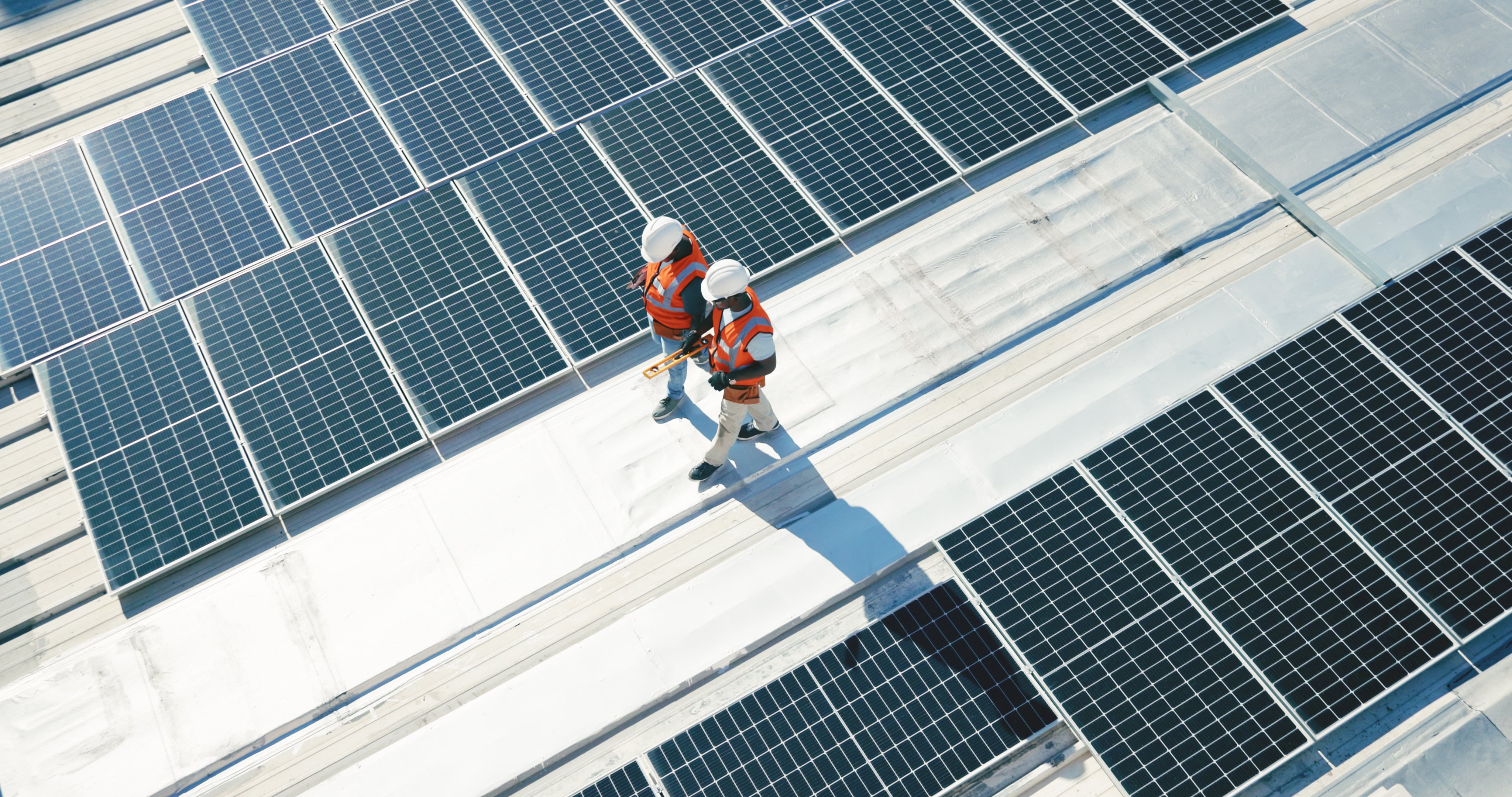The UK Government has targeted reaching net zero across the economy by 2050, with green energy generation a central part of the proposals first outlined in 2021. Targets in this realm include moving towards a decarbonised power system by 2035, a process that will certainly include accelerating the deployment of low-cost renewables.
Food and drink manufacturers can play a role in meeting these targets by sourcing renewable energy and investing in clean energy generation on-site. The need to go further will only increase as the climate crisis worsens, while firms are also becoming more aware of how their environmental credentials impacts consumer demand.
Accusations of greenwashing have also emerged across the sector, which should make leadership teams think twice before overinflating the progress that has been made. In fact, the Competition and Markets Authority has been granted new powers to penalise companies for breaching consumer protection laws, with fines worth up to 10% of a company’s global annual turnover allowed.
Investing in green energy
“Across the food sector, companies are increasingly integrating renewable energy sources such as solar power for heating and electricity and biogas from food and dairy waste for on-site energy generation,” said Rich Clothier, managing director of cheese and butter producer Wyke Farms.
“This shift is driven by both environmental goals and economic incentives, as renewable energy can reduce long-term operational costs and carbon footprints.”
Wyke Farms has made multiple investments to “support the energy transition” over the years, including the construction of an anaerobic digestion (AD) plant.
“[We have] already achieved 100% renewable energy usage across its operations, powered by anaerobic digestion of farm and dairy waste producing electricity and green gas back to grid,” Clothier said.
The firm has also installed solar panels on-site, electrified its fleet of milk collection vehicles and encouraged its suppliers to produce farm renewables through incentive schemes.
Dairy co-operative Arla Foods has also embraced anaerobic digestion as a source of energy.
“AD has the potential to play a very valuable role in terms of waste disposal, improving the management of slurry, and providing access to clean biogas, including at a community level,” said VP of production at Arla, Fran Ball.
“Some Arla farmers are already utilising AD technology to turn waste from the cows into renewable energy, but we need more support from external stakeholders to realise the full potential that AD offers.”
Additionally, Arla has committed to switching to 100% renewable electricity across production sites by the end of 2025, which it has said will “contribute 58% of the emissions reductions we need to make in production by 2030”.
Ball explained: “Arla completed an installation of roof mounted solar panels on its Oswestry site in 2023, which during peak power can generate 800KW. This means it can generate 12% of the site’s annual electricity usage, which would remove 137,920kg of carbon emissions.”
Alma Castrejon-Davila, senior campaigner at Changing Markets Foundation, acknowledged the potential of biogas and biomethane to play a role in sustainable energy systems, but warned firms not to fixate on anaerobic digestion at the expense of “making deeper, systemic changes in their supply chains”.
“Although biogas/biomethane is produced from organic waste such as manure, and therefore is technically renewable, it remains a combustible gas which emits greenhouse gas emissions,” added Castrejon-Davila.
“One area of concern is leaks from biogas plants emitting methane into the atmosphere. Even without the risk of leaks, the savings from biogas are much lower than the industry would have you believe.”
Manure is commonly used as a feedstock for biogas production, but Castrejon-Davila emphasised that manure only accounts for 20% of methane emissions in the meat and dairy sector.
“Furthermore, manure is often seen as a waste product and therefore is not accounted for in the emissions calculation from its source, this obscures the fact that enteric fermentation, or cow burps, are responsible for the 80% of methane emissions in this sector,” she continued.
“Additionally, manure is likely to be collected from industrial livestock production over extensive systems and a lack of independent monitoring and reporting also risks methane leaking from biogas plants.”
As a result, Changing Markets Foundation believes that further investment into biogas production should not be encouraged because it detracts from the need to shrink livestock herds.
“The EU’s RePowerEU plan doubled the EU’s production target for biomethane to 35 billion cubic meters by 2030,” Castrejon-Davila said.
“This represents a 614% increase from the current production of 4.9 billion cubic metres. With significant increases in production on the way, there must be clear regulation on feedstocks and leaks to ensure biomethane and biogas is not produced with perverse incentives for the climate.”
Changing Markets Foundation also cited a report that it conducted on Arla’s use and promotion of anaerobic digesters. The report found that even if Arla was able to capture all manure and there was no leakage it “would still only be able to claim methane reductions of 15% at most”.
Sector-wide action
While individual firms taking action can undoubtedly have an impact, a coordinated approach that engages food and drink businesses of all sizes has more potential to bring about meaningful change.
The Scotland Food & Drink Partnership Net Zero Commitment was announced in November 2021 at COP26 with the goal of helping the industry address the challenges of transitioning to net zero. Programme manager Simon McKeating told Food Manufacture that the Scottish food and drink sector has made “solid progress” to date, but that the picture was still mixed.
“Larger manufacturers with the ability to invest early benefited from historic tariff incentives and have made commendable strides with solar, wind, and technologies like anaerobic digestion (AD) or combined heat and power (CHP),” McKeating said.
“Smaller producers have been more constrained, facing steeper costs, bureaucratic hurdles, and grid connection delays.”
On the role of Scotland Food & Drink Partnership’s Net Zero Commitment, he explained that it was working to amplify industry voices and point members in the direction of support.
“For businesses looking to accelerate their transition, we recommend two parallel tracks: energy efficiency and renewable sourcing,” explained McKeating.
“Switching to a renewable electricity tariff is one of the simplest and most impactful steps – reducing Scope 2 emissions and creating demand that drives greater renewables capacity.
“At the same time, investment in energy monitoring, process efficiency, and waste heat recovery remains critical. Not every business can fund a new refrigeration system with AI optimisation, but even low-cost measures like improving insulation or fixing leaks can make a difference.”
Based on his experiences at Wyke Farms, Clothier advised that other food and drink firms also look at areas of their operations beyond energy generation and procurement when mapping out their net zero journey.
“To future-proof the sector, companies should invest in digital automation and smart manufacturing to optimise energy use,” he said.
“Training and upskilling in environmental technologies and data-driven farming and new product development aligned with low-carbon and premium markets [can also] help firms stay competitive, attract talent, and meet evolving consumer expectations.”
Changing Markets Foundation has tried to promote sector-wide action by exposing “irresponsible corporate practice” and celebrating examples of progress.
“Our work highlighting the steps companies need to take, for example in setting methane emissions reductions targets, all support the wider energy transition,” said Castrejon-Davila.
“Food and drinks companies have a huge role to play, our exposés of weak climate plans and targets by big meat and dairy companies, including the over-selling of ‘biogas’ is intended to promote the better monitoring and regulation needed to fight the climate crisis and support a real transition.”
Therefore, the charity said that the transition towards green energy should be accompanied by a shift away from meat and dairy consumption.
“While technology has a role to play, it is not a magic wand, overreliance on technological solutions, and process such as offsets and insets, will not meet climate goals alone,” added Castrejon-Davila.
“To be truly ahead of the curve and accelerate a real energy transition companies need to set science-based methane reduction targets of at least 30% by 2030 compared to 2020 levels, which focus on absolute emissions.
“In real terms this will mean reducing their reliance and promotion of meat and dairy products and increasing investment in plant-based products.”





